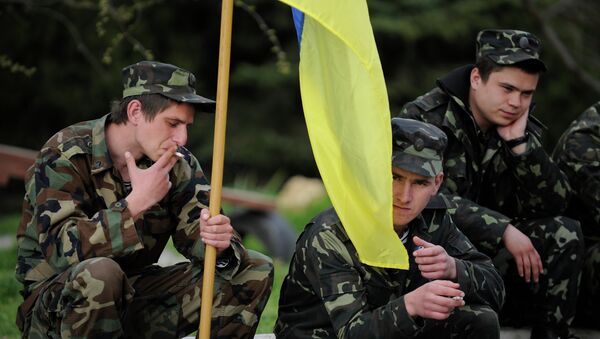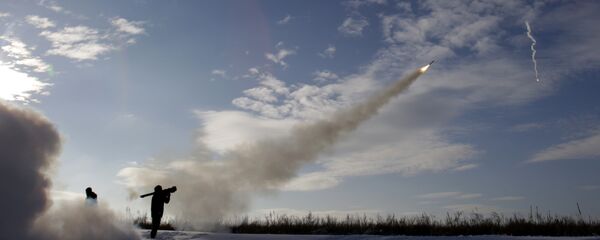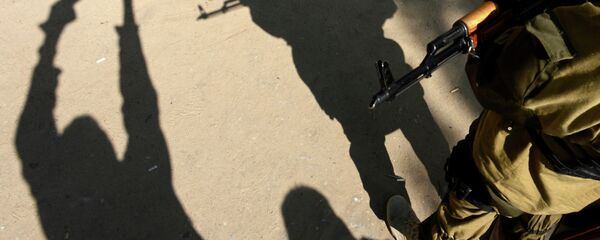According to him, all this Ukrainian military muscle-flexing cannot be described as a show of forces as such because "there is nothing to showcase."
The interview came shortly after Zaur Smirnov, head of Crimea's government committee for inter-ethnic relations, said that Ukraine is increasing the military presence of government forces near its borders with Russia's Republic of Crimea.
Ukraine accused of playing 'war games' over military drills near Crimea border amid fears of new Russia conflict https://t.co/Sg10AIIoAZ pic.twitter.com/aEHzGTAoQY
— Daily Express (@Daily_Express) 11 февраля 2017 г.
"Kiev is building up its military presence near our borders. Several drills, engaging different military groups, have taken place over the past month. We regard it as an attempt to disturb the situation along the border," Smirnov said.
The Ukrainian army plans to hold another training exercise near the border with Crimea later this week, Smirnov added, citing data gained from his sources.
Speaking to Sputnik, Sergey Tsekov, for his part, said that the Republic of Crimea is ready for Ukraine's provocations and that talk of Kiev's full-fledged military muscle-flexing is irrelevant.
"I do not think that this is a show of force because there is nothing special to showcase. Such military exercises are not uncommon in Ukraine. By doing so, the authorities are first of all trying to show Ukrainians the level of their country's defense capability. Also, it is Kiev's message to those who support Ukraine, including the European Union and America," Tsekov said.
He added that he is sure that "they don't even think about fulfilling any serious intentions, for example, unleashing a military conflict with Russia."
According to him, such an idea can only be in the minds of notorious nationalists or mentally unstable people.
"However, I would like to note, there are such people in the Ukrainian government. That's why we should always be ready to counter any provocations against the territories of the Russian Federation, including in Crimea," Tsekov pointed out.
The referendum was held after the February 2014 coup in Ukraine. Kiev, as well as the European Union, the United States and many of their allies, did not recognize the move and consider the peninsula to be an occupied territory.
Never miss a story again — sign up to our Telegram channel and we'll keep you up to speed!





